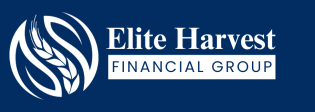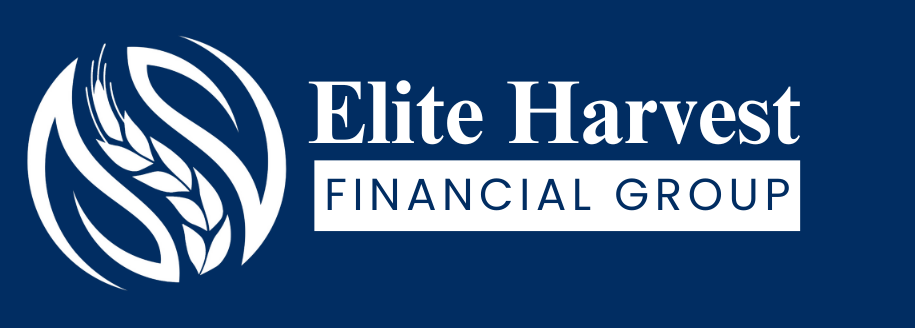Did you know that most Whitby homeowners leave thousands of dollars on the table when getting mortgage renewal tips from only their current lender?
Unfortunately, many homeowners simply sign the first renewal offer that arrives in the mail, missing out on significant savings and better terms. When it comes to mortgage renewals, timing and preparation can make a substantial difference to your financial future.
As a Whitby homeowner approaching a 2025 mortgage renewal, you’re facing this important financial decision during a period of changing interest rates and economic conditions. Specifically, the renewal process offers a rare opportunity to reassess your mortgage needs, potentially secure better rates, and adjust your payment structure without penalties.
Understand What Mortgage Renewal Means
Your mortgage represents more than just a monthly payment—it’s a contract with specific terms and conditions. At its core, mortgage renewal marks the end of your current mortgage contract and the beginning of a new one. Understanding this process is essential for making informed financial decisions.
What happens at the end of your mortgage term
In Canada, the full time required to repay your mortgage (the amortization period) is typically divided into multiple shorter terms. These terms usually range from a few months to five years or longer. When your current term expires, you have several options:
- Sign a renewal offer with your existing lender
- Negotiate better terms with your current lender
- Switch to a different financial institution
- Pay off your mortgage entirely (though this is less common)
Federally regulated financial institutions must provide you with a renewal statement at least 21 days before your term ends. This statement includes critical details such as your remaining principal balance, the interest rate being offered, payment frequency, term length, and any applicable fees or charges.
If you don’t respond to the renewal offer before the deadline, some lenders will automatically renew your mortgage. However, this automatic renewal often comes with less favourable terms—potentially a shorter mortgage term with a higher interest rate than what you could negotiate. Additionally, your lender can refuse renewal if your financial situation has deteriorated or you’ve missed payments.
Why renewal is a key financial decision
Mortgage renewal represents a significant financial checkpoint. Unlike mid-term changes that typically trigger prepayment penalties, renewal allows you to adjust important aspects of your mortgage without extra costs.
Furthermore, renewal offers a prime opportunity to:
- Reassess your financial situation – Consider whether your income or expenses have changed since your last renewal
- Adjust payment structures – You can modify payment size, frequency, or make lump sum payments that reduce your principal balance
- Negotiate better rates – Your current lender’s first offer is rarely their best rate. This is your chance to shop around and potentially save thousands in interest costs
- Align your mortgage with future plans – If you’re planning to sell soon or anticipating major life changes, you can select a term length that aligns with these goals
- Consider refinancing options – Renewal is also when you might evaluate whether refinancing makes more sense than a straight renewal
Many homeowners overlook the importance of this decision point—according to financial experts, accepting the first renewal offer without negotiation is one of the costliest mortgage mistakes. Your renewal is an opportunity to leverage lender competition to secure better terms.
Consequently, starting the renewal process early—up to four months before your renewal date—gives you time to explore options and avoid last-minute decisions. Some lenders even allow you to renew up to six months early without prepayment charges, which can be advantageous if interest rates are expected to rise.
Start Planning Early (120 Days Rule)
Starting your mortgage renewal process as early as possible gives you a significant advantage. Most Canadian homeowners miss out on better rates simply because they leave renewal planning until the last minute. Let’s examine why timing is everything when renewing your mortgage.
When to mark your calendar
The ideal time to begin your mortgage renewal process is 120 days—approximately four months—before your current term expires. This timeline is crucial as most lenders allow you to start renewal discussions and lock in rates during this period without facing prepayment penalties.
To stay organized:
- Find your mortgage maturity date on your contract or through online banking
- Count backward 120 days and mark this date prominently on your calendar
- Set multiple reminders in the months leading up to renewal
- Consider scheduling an appointment with a mortgage professional around 150 days before maturity to discuss options
Notably, some financial institutions may even allow you to begin the renewal process earlier—up to 180 days before maturity.
Benefits of early rate holds
Securing an early rate hold is perhaps the most valuable benefit of starting the renewal process at the 120-day mark. This financial tool protects you from interest rate fluctuations during your decision-making period.
Rate holds offer a dual advantage:
- Protection against rising rates: If market interest rates increase during your decision period, you remain protected with the lower rate you initially secured.
- Flexibility with falling rates: Should rates decrease during the hold period, you can typically take advantage of the better rate—giving you the best of both worlds.
Most lenders offer rate holds valid for 120 days, though some may limit them to 90 days. Longer hold periods provide greater security and planning stability.
Early rate holds contribute significantly to your financial planning by providing certainty about your future mortgage payments. This predictability helps you create realistic budgets and eliminates the anxiety of wondering how changing interest rates might affect your finances.
Avoiding last-minute decisions
Waiting until just before your renewal date creates unnecessary pressure that often leads to hasty, financially disadvantageous decisions. Without adequate time to explore alternatives, you might accept your current lender’s first offer, which typically features higher interest rates than those available to new customers.
Moreover, if you don’t proactively select renewal options, your mortgage may automatically renew—often with a shorter term and a higher interest rate. This auto-renewal scenario can cost you thousands in additional interest over your next term.
Starting early gives you breathing room to:
- Research current market rates and trends
- Explore options with different lenders and mortgage brokers
- Gather paperwork necessary for switching lenders if beneficial
- Negotiate more effectively with your current lender using competitive offers as leverage
Ultimately, the 120-day rule exists to give you control over one of your largest financial commitments. By marking this important date and taking proactive steps, you position yourself to make informed decisions rather than rushed choices under deadline pressure.
Compare Offers and Negotiate
Comparing multiple mortgage offers is the cornerstone of a successful renewal strategy. While your current lender values your business, they may not automatically offer their most competitive rates when it’s time to renew your mortgage.
Why your current lender may not offer the best rate
Most lenders base their renewal offers on posted rates, which are typically higher than what new customers might receive. Indeed, according to Equifax Canada data, over 25% of Canadian homeowners switched to another lender at their renewal in Q4 of 2023, up from 21% in 2022. This growing trend highlights an important reality: loyalty doesn’t always pay.
Your first renewal offer is rarely the best deal available. Banks and other financial institutions often send standard renewal letters hoping you’ll simply sign without negotiation. This approach allows them to maintain higher profit margins while betting on customer convenience and inertia. Essentially, they’re hoping you’ll choose the path of least resistance.
Consider this example: if your mortgage is up for renewal next month, and your lender offers 4.97% while another lender offers 3.99% on a $696,680 mortgage with a 25-year amortization, switching lenders would save you $381.78 monthly or $22,906.84 over five years.
How to ask for a better deal
Once you’ve received your initial renewal offer, take these practical steps to negotiate effectively:
- Directly ask your lender: “What is the bottom rate I could get?” This simple question often “opens the floodgates” for better discounts
- Tell your lender you’re shopping around for better rates elsewhere
- Remind them of your payment history and overall relationship
- Be prepared to walk away if they won’t budge significantly
Despite potential discomfort with negotiating, remember that lenders expect it. They typically build in a rate premium for the convenience of renewing, knowing most customers prefer avoiding the hassle of reapplying.
Using a mortgage broker to shop around
A mortgage broker can be an invaluable asset during renewal time. Primarily, brokers have relationships with numerous lenders and can quickly shop rates on your behalf. Unlike bank mortgage advisors who can only discuss their own products, brokers provide access to a wider range of options.
Furthermore, 58% of mortgage consumers who conducted online research prior to their most recent mortgage transaction searched specifically for interest rates. Nevertheless, finding and comparing the best rates independently can be time-consuming and potentially confusing.
Particularly noteworthy, large-volume brokers often receive better rates from lenders because they bring in more business. These volume discounts are then passed on to you, potentially saving thousands in interest costs.
Additionally, using a broker service typically means just one credit inquiry rather than multiple checks that could potentially impact your credit score. Most importantly, broker services are generally free to well-qualified borrowers—they’re paid by the lenders, not by you.
Beginning your comparison shopping early gives you ample time to evaluate all options and use competing offers as leverage, whether you ultimately stay with your current lender or make a switch.
Choose the Right Term and Rate Type
Selecting the right mortgage structure at renewal time can impact your finances for years to come. The mortgage renewal process presents a perfect opportunity to reevaluate whether your current term length and rate type still align with your financial objectives.
Fixed vs. variable: pros and cons
Fixed and variable rate mortgages offer distinctly different advantages depending on your risk tolerance and financial situation.
With a fixed-rate mortgage, your interest rate remains unchanged throughout the entire term, providing payment stability and predictability. This option shields you from potential interest rate increases, making budgeting straightforward. Fixed rates typically appeal to homeowners who prefer certainty over potential savings.
In contrast, variable-rate mortgages fluctuate with your lender’s prime rate. Although payments usually remain consistent, the portion applied to principal versus interest changes as rates shift. When rates decrease, more of your payment reduces your principal; when rates increase, more goes toward interest. Although variable rates historically offered savings compared to fixed rates, current market conditions may differ.
Consider this comparison:
- Fixed rate benefits: Payment stability, protection against rising rates, known interest costs
- Variable rate benefits: Potentially lower overall interest costs, ability to convert to fixed at any time without penalties, and typically lower prepayment penalties
Short-term vs. long-term: what suits your goals
Mortgage terms typically range from six months to ten years, with shorter terms generally offering lower interest rates but more frequent renewals.
Shorter terms (1-3 years) provide flexibility if you anticipate moving soon or expect interest rates to fall. Alternatively, longer terms (5+ years) offer extended rate stability but usually at a premium, with higher interest rates.
First consider your immediate plans—selling your home, refinancing, or making substantial prepayments—as these factors may make shorter terms more advantageous. Subsequently, evaluate your risk tolerance, as shorter terms expose you to market fluctuations more frequently.
Hybrid and convertible options
Beyond standard fixed and variable options, alternative mortgage structures offer interesting flexibility for Whitby homeowners.
Hybrid mortgages combine both fixed and variable components under one umbrella. This arrangement allows you to hedge against interest rate fluctuations by splitting your mortgage between rate types—enjoying partial stability from the fixed portion alongside potential savings from the variable portion.
Convertible mortgages represent another strategic option, allowing you to transition between mortgage types during your term. For instance, you can convert from variable to fixed rate without prepayment penalties. This feature proves valuable if you initially select a variable rate but later desire the security of locking in a favourable fixed rate.
On balance, the ideal choice depends on your financial circumstances, future plans, and comfort with interest rate variability.
Consider Refinancing or Adjusting Amortization
Renewal periods offer homeowners a perfect opportunity to consider more substantial mortgage changes beyond simple rate adjustments. For many Whitby residents, refinancing or modifying amortization might provide additional financial advantages based on their current situation.
When refinancing makes sense
First and foremost, refinancing replaces your existing mortgage with a new one, allowing for different terms and conditions. This approach makes sense if interest rates have dropped significantly since your initial mortgage, potentially saving you money over time. You might also consider refinancing to switch from a variable to fixed-rate mortgage if you prefer payment stability.
Beyond interest considerations, refinancing allows you to access your home’s equity—the difference between your home’s value and your remaining mortgage balance. In fact, you can typically borrow up to 80% of your home’s appraised value.
Stretching amortization to lower payments
Extending your amortization period spreads payments over a longer term, reducing monthly costs. For instance, a $1,114,688 mortgage at 4.10% would cost $5,924 monthly with a 25-year amortization, whereas a 30-year term would lower this to $5,364.
Of course, this approach involves trade-offs. Although your payments decrease, you’ll pay substantially more interest over time—approximately $140,262 extra when extending from 20 to 25 years in the example above. To put it differently, longer amortization periods might add tens of thousands of dollars to your mortgage costs.
Using equity for renovations or debt consolidation
At renewal time, accessing home equity can fund important projects or consolidate high-interest debts. Homeowners typically have three options:
- Cash-out refinance: Borrow against your equity in a lump sum
- Home Equity Line of Credit (HELOC): Access up to 65% of your home’s value with a flexible credit line
- Second mortgage: Borrow against equity without changing your first mortgage
These approaches can be particularly beneficial for consolidating high-interest debts like credit cards, potentially reducing your overall interest costs significantly.
Conclusion
Your mortgage renewal presents a significant opportunity to improve your financial position and save thousands of dollars over your next term. Most importantly, approaching this process strategically can make a substantial difference in your overall homeownership costs.
Starting early gives you the advantage of securing rate holds and exploring multiple options without the pressure of looming deadlines. Additionally, comparing offers from various lenders ensures you don’t leave money on the table by simply accepting your current lender’s first proposal. After all, loyalty doesn’t always pay when it comes to mortgage renewals.
The right mortgage structure matters just as much as the interest rate. Therefore, carefully consider whether a fixed or variable rate, short or long term, or even hybrid options best align with your financial goals and risk tolerance. Furthermore, renewal time provides the perfect opportunity to evaluate whether refinancing or adjusting your amortization might better serve your current needs.
Certainly, taking control of your mortgage renewal requires some effort, but the potential savings make it worthwhile. Armed with the knowledge from this guide, you can approach your 2025 mortgage renewal with confidence rather than anxiety. Remember, a small investment of time and research during this critical financial checkpoint can yield substantial returns throughout your next mortgage term.
The mortgage renewal process ultimately puts you in the driver’s seat of your financial future. Though many Whitby homeowners simply sign their renewal papers without negotiation, you now have the tools to make informed decisions that can significantly impact your financial wellbeing for years to come.







